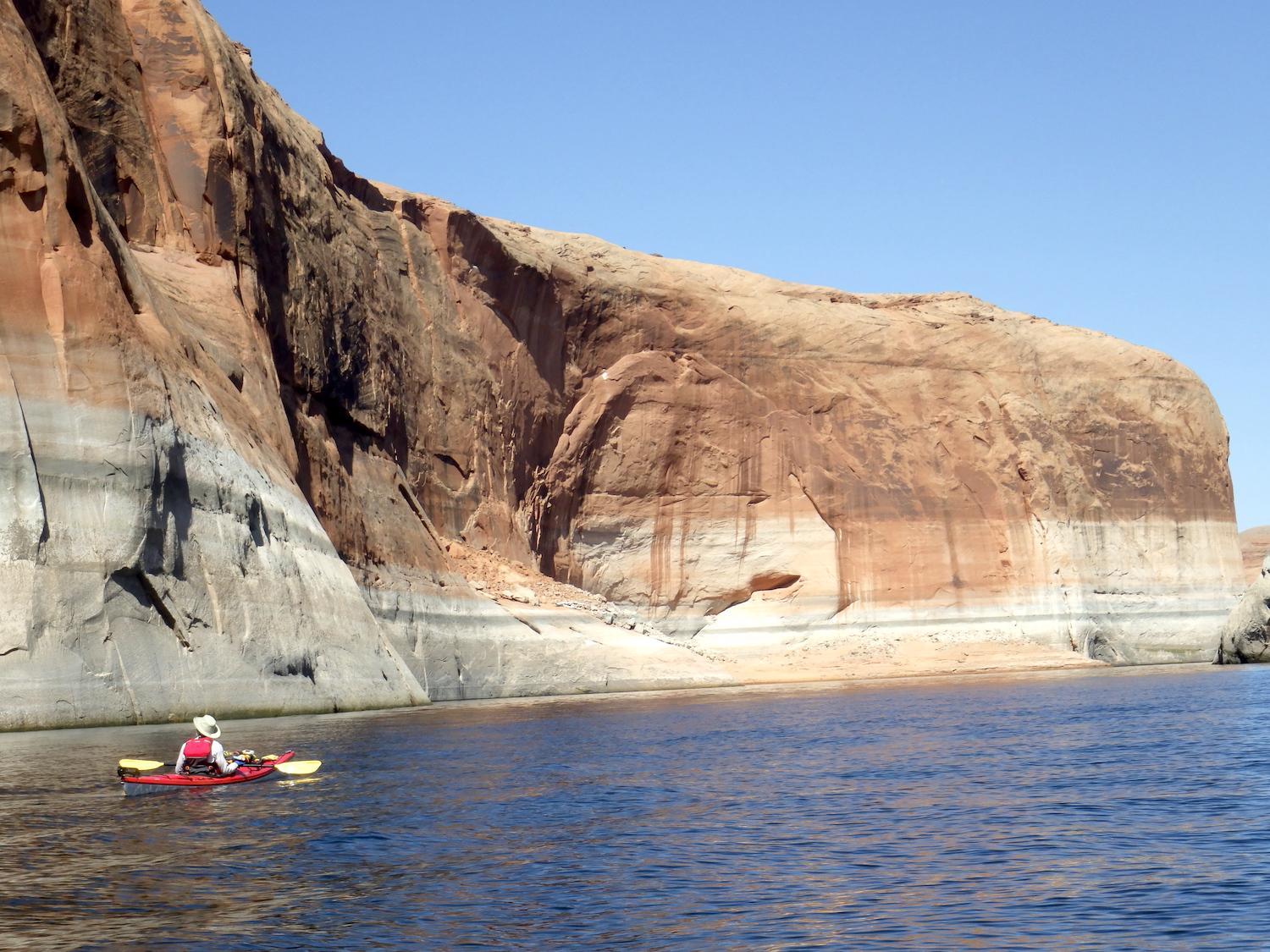
The National Park Service would receive millions of dollars through the Inflation Reduction Act of 2022 to tackle climate change impacts in the National Park System/Kurt Repanshek file
Conservation groups are applauding Senate passage of the Inflation Reduction Act of 2022, which carries about $1 billion for the National Park Service to hire more staff and continue to prepare for climate change.
If the House of Representatives passes the Senate version later this week as expected, the Park Service is in line to receive $500 million over a decade to hire additional personnel, and some $500 million would be split between the Park Service and the U.S. Bureau of Land Management on habitat restoration and climate change resiliency. Another $200 million would be targetted to address backlogged maintenance items in the National Park System, according to John Gardner, the National Parks Conservation Association's senior director of budget and appropriations.
“The Inflation Reduction Act makes record investments to address climate change from many angles, substantially reducing U.S. greenhouse gas emissions, building climate resiliency to protect people and nature and preparing our national economy for a clean energy future," said Chesapeake Conservancy President and CEO Joel Dunn. "Included in the bill’s $369 billion for provisions addressing climate change is nearly $1 billion for the National Park Service for staffing and projects to protect parks and natural landscapes, $2.6 billion for the National Oceanic and Atmospheric Administration to protect coastal communities and marine habitats and $250 million for the U.S. Fish and Wildlife Service to protect wildlife and habitats.
“Global climate change directly impacts the health and dynamics of local ecosystems, and the Chesapeake Bay watershed is no exception. The long-term health of the Chesapeake Bay and the health of the people and wildlife that live in the watershed are threatened by the increasing temperatures, increasing flooding, storms, and sea level rise that are occurring in our region due to a warming planet.
“Chesapeake Conservancy and partners are working to build climate resiliency locally by conserving 30% of the Chesapeake Bay watershed by 2030.
“To protect its national treasures like the Chesapeake Bay, the United States must implement climate policies and investments that put our country and our world on a fast track to reducing carbon and greenhouse gas emissions, and on this extraordinary challenge the Inflation Reduction Act of 2022 meets the mark.”
At American Rivers, Tom Kiernan called the legislation "a historic step forward, and the work is far from finished. Along with the forward-thinking provisions, the deal also includes investment in fossil fuel infrastructure, as well as a possible agreement to weaken vital safeguards such as the Clean Water Act. We must stay vigilant, defending our rivers and clean drinking water supplies from harm and ensuring impacted communities are in control of their futures."
“Rivers are the source of powerful, equitable, cost-effective climate solutions," added Kiernan, the group's president. "A healthy river is a community’s first line of defense against climate impacts, offering clean drinking water, flood protection, sustainable food, and safe places to stay cool and connect to nature and culture."
It wasn't immediately clear what climate change-related projects the Park Service would tackle if the funding comes through.



Comments
Person - The monies going to the NPS are a tiny part of a $750 billion dollar package. Its the eye candy to get the uninformed to approve.
In non public lands media the 500 million hasn't even been mentioned. That isn't how eye candy works. Furthermore, the NPS needs the money badly. It is understaffed, overstressed, and its personnel are underpaid for their skill set and compared to the rest of the federal government. Seems like money well spent to me
Person - I don't dispute the Parks could use the money. But if your goal is to help the Parks, pass a Parks specific piece of funding. You know, like the $1.9 billion package passed during the Trump administration. This $500 mil to the parks is a pintence in the overall scheme of this package. Its eye candy for the 300 million that visit the parks. And there are other similar pieces of candy for other special interest groups. This legislation is a disaster and the fact a few special interest get their ego's (and pockets) stroked doesn't change that.
Here's the thing about the GAOA passed under trump: as a one time expenditure designed for infrastructure, most of the money is going to go to contractors. Will it improve the quality of the parks? undoubtedly. Will it impact the shortage of frontline personnel? Not really. this provision will do just that. huzzah
Person - huzzah, lets destoy the middle class. Who cars, a few park rangers will get jobs. Noone will be able to afford to go to the parks but those park rangers will have a job.
Nobody laments the parks getting money whether it be for infrastructure or for staffing. What we don't like is having to ruin the economy while doing so.
And BTW - $900 million going ANNUALLY to the Land and Water Conservation fund is neither one time nor dedicated to infrastrucure.
Hmmm. So, something passed under Commander Bonespurs was needed but anything else is wild liberal overspendikng along with the rest of your cut and paste critical screed. Too predictable.
Rick - The something passed under Trump was specific to the public lands. It wasn't some miniscule piece of a massive inflationary, tax raising, job killing spend. The fact you can't see the difference is too predictable.
It is annoying that yet another comment thread has been hijacked by a right-wing troll and his left-wing enablers.